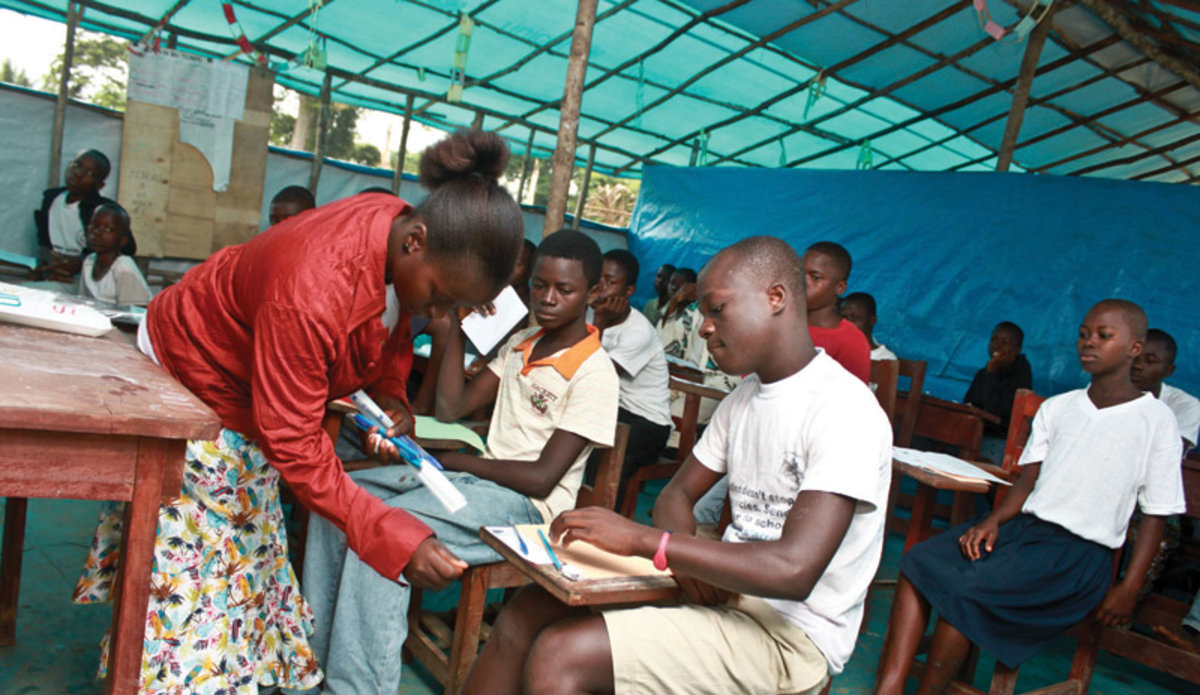Refugee Children Excel in Exams!
Prospects looked grim for especially children who were approaching their certificate exams when they fled the post-election conflict in Cote d’Ivoire early last year. For them, the future seemed compromised, as Liberia’s national curriculum was alien to the academic regime under which the children attended school in Côte d’Ivoire. But thanks to timely intervention by UNICEF, all five refugee camps across southeastern Liberia now run full-fledged primary schools aligned to the Ivorian education system and curriculum. Away from the camps, too, several more such schools have been set up to cater to the children of refugees still living with host communities.
In all, more than 11,000 Ivorian children were able to continue their education in Liberia over the last academic year thanks to these schools. What’s more, 393 of them effectively sat the exams for the Certificat d’études primaire et élémentaires (CEPE), equivalent to the Anglophone First School Leaving Certificate, which attests completion of primary education.
By and large, it was a rare feat to not only conduct examinations for refugee children, but have this certified and approved by their country of origin.
The exam took place on 24 July 2012 with the refugee camps of Bahn (Nimba County), Duogee, Solo and PTP (Grand Gedeh County) and Little Wlebo (Maryland County) serving as exam centres.
UNICEF organized the exams in conjunction with the national authorities of both Liberia and Côte d’Ivoire. Other partners who pitched in to see the venture through included International Rescue Committee (IRC), Save the Children, PLAN International/Caritas, and Visions in Action, the UNHCR, the Liberia Refugee Repatriation and Resettlement Commission (LRRRC), and camp managers. Officials from the Ivorian Ministry of Education travelled to Liberia to invigilate and ensure the exams were conducted in conformity with standards enforced back home.
It was, by and large, a complex process that required close inter-agency and even cross-border coordination. And considerable logistics, too. Children living in distant communities had to be ferried to the exam centres nearest to them. Those from Ziah camp that was under closure, for instance, had to be relocated to PTP weeks before the exam. Besides helping to transport the children and their caregivers to and from the camps, the UNHCR also provided accommodation and food to support them until the exams were over. The exam scripts too had to be returned to Monrovia, from where they were shipped to Abidjan, Côte d’Ivoire, for marking and grading.
Candidates fielded by the five different centres (camps) included 74 from Bahn, 84 from Duogee, 126 from Solo, 72 from PTP and 37 from Little Wlebo. Overall performance was excellent, with an average pass rate of 84 per cent. PTP camp in Grand Gedeh posted the best performance, with a pass rate of 99 per cent.
Thanks to the CEPE exams conducted in Liberia, the successful candidates should be able to re-enter the Ivorian education system if their families choose to return home.
In the mean time, initiatives are afoot in the camps for a secondary cycle so that refugee children in Liberia can aspire to more than just elementary education. The refugee community and partner agencies such as UNESCO, UNICEF and UNHCR are working together to make that dream come true for those children who may continue to remain in Liberia for a long time.
 UN
UN United Nations Peacekeeping
United Nations Peacekeeping





